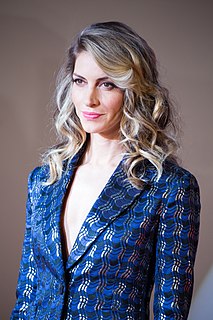A Quote by Sharon Salzberg
We use mindfulness to observe the way we cling to pleasant experiences & push away unpleasant ones.
Quote Topics
Related Quotes
If something comes along that you don't like, there are a few sort of four-letter words that you can use to push it out of the sphere of discussion. If you were in a bar downtown, they might have different words, but if you're an educated person what you use are complicated words like "conspiracy theory" or "Marxist." It's a way of pushing unpleasant questions off the agenda so that we can continue in our own happy ideology.
Monks, one thing, if practiced and made much of, conduces to great thrill, great profit, great security after the toil, to mindfulness and self-possession, to the winning of knowledge and insight, to pleasant living in this very life, to the realization of the fruit of release by knowledge. What is that one thing: It is mindfulness centered on the body.

































